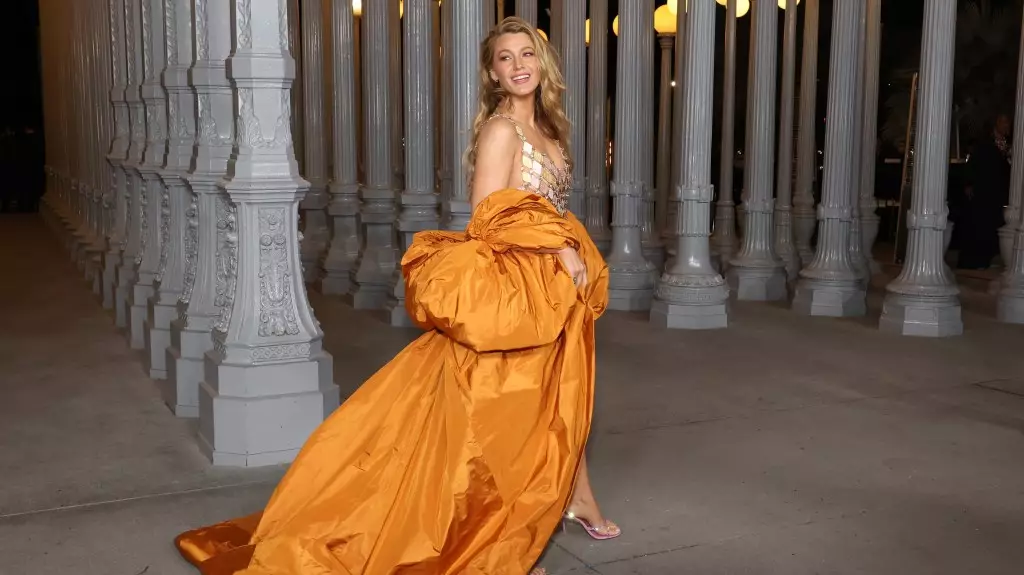The entertainment industry, known for its glitzy façade, often hides dark undercurrents of misconduct that can severely impact the lives and careers of those involved. The recent lawsuit filed by actress Blake Lively against her co-star and director Justin Baldoni underscores this disturbing reality. This legal battle unfolds a narrative of alleged sexual harassment and retaliatory actions that raises questions about the safety of women in Hollywood.
At the heart of Lively’s allegations is a claim that Baldoni engaged in sexually inappropriate behavior and further escalated the situation by orchestrating a public smear campaign against her. The lawsuit, which spans 80 pages and was filed with the California Civil Rights Department, sheds light on what Lively described as Baldoni’s “disturbing behavior” on the set of the film adaptation of Colleen Hoover’s novel, *It Ends With Us*. This includes claims of improvised intimate scenes and inappropriate personal comments that made Lively feel uncomfortable and objectified.
This lawsuit signifies more than just personal grievances; it reveals a pattern of behavior that, if proven true, could reflect broader issues regarding the treatment of women in the entertainment industry. The specifics of the allegations don’t merely highlight an individual incident but suggest a systemic problem that correlates with the industry’s power dynamics. When those in positions of authority are accused of leveraging their status to perpetuate harm, it raises concerns about professional ethics and the measures in place to protect vulnerable individuals.
The repercussions of this brewing scandal for Lively have been immediate and, as described in the lawsuit, quite substantial. One significant consequence was the cancellation of high-profile appearances. Lively was scheduled to host the Season 50 premiere of *Saturday Night Live*, a coveted opportunity for any actor. However, following the fallout from the alleged misconduct and harassment, she chose to step back, fearing she could not participate in public events without being forced to confront the disturbing issues that emerged during the film’s production.
Moreover, the lawsuit alleges that this negative atmosphere contributed to her withdrawing from a crucial corporate event for her haircare line, further illustrating the professional toll that such an environment can exact on an individual. This withdrawal from significant public engagements exemplifies how allegations of misconduct can ripple through an individual’s career, impacting their opportunities, image, and financial stability.
Baldoni’s legal counsel has vehemently denied the accusations, labeling them as “categorically false” and part of a broader attempt by Lively to reconstruct her image after facing unfavorable public opinion. This defense strategy raises the question of accountability within the industry—was this merely a reaction to expressions of discontent, or does it mask a deeper-seated culpability that Baldoni may be attempting to evade?
Following the lawsuit’s filing, Baldoni faced immediate repercussions within the industry, including being dropped by his agency, WME, which reflects the seriousness with which accusations such as these are taken in the entertainment community. This swift agency response indicates a continued shift towards taking allegations of harassment more seriously, demonstrating a growing recognition of the adverse effects such behavior can have on individuals and the industry at large.
The lawsuit has not only incited public discourse concerning workplace harassment but has also garnered expressions of support from peers, including Hoover, the author of the source material. This backing from fellow industry figures signifies a crucial shift toward solidarity among women and allies in the fight against harassment, representing an awakening that could encourage others to come forward with their experiences.
The ongoing legal battle between Blake Lively and Justin Baldoni encapsulates a significant moment in the awareness and discourse surrounding workplace harassment and conduct in the entertainment industry. As the legal proceedings progress, they serve as a powerful reminder that every voice counts, and every story deserves to be heard. For Lively and countless others, it symbolizes not only a call for personal accountability but also a push for broader systemic change.

